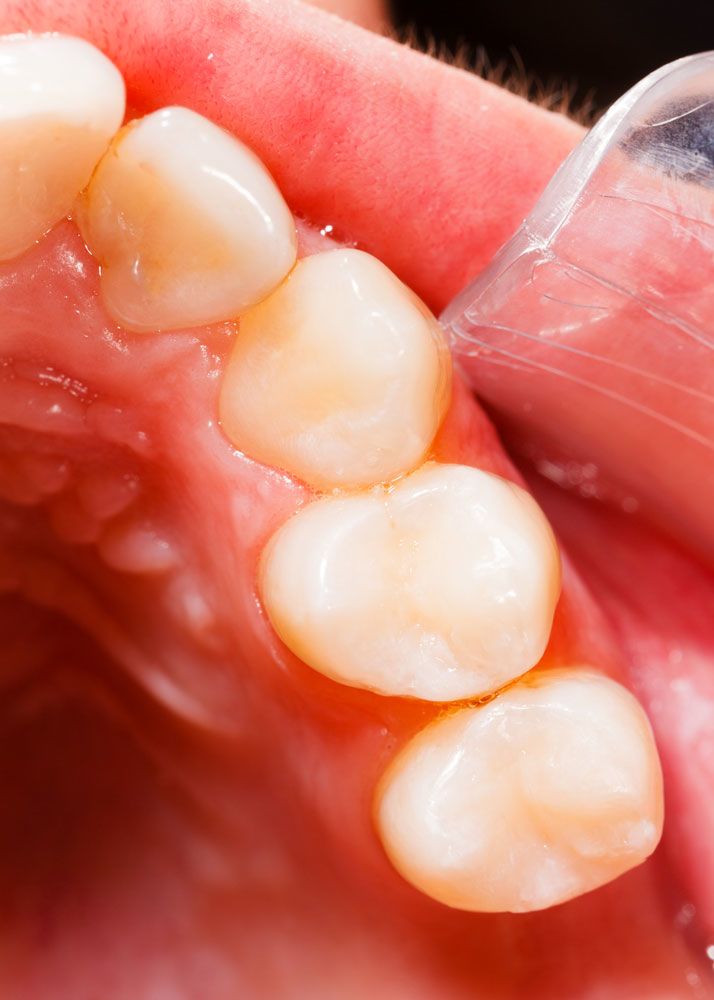Common Symptoms of Gum Disease
 Good oral hygiene habits and regular dental appointments can be extremely helpful in maintaining the health of the teeth and gums, but even with this quality care, some oral health problems may develop. Gum disease is a condition that is far more common than most patients realize. Gum disease progresses in stages, so a patient may not even be aware that the condition is present until it has progressed to a more advanced stage, in which case periodontal treatment can eliminate infection and restore the health of the gums. Here, Drs. Alex and Jason Hecht discuss some of the most common symptoms of gum disease for our Staten Island, NY patients. By recognizing these symptoms, and seeking treatment as soon as they develop, patients can prevent the need for costly and invasive treatment.
Good oral hygiene habits and regular dental appointments can be extremely helpful in maintaining the health of the teeth and gums, but even with this quality care, some oral health problems may develop. Gum disease is a condition that is far more common than most patients realize. Gum disease progresses in stages, so a patient may not even be aware that the condition is present until it has progressed to a more advanced stage, in which case periodontal treatment can eliminate infection and restore the health of the gums. Here, Drs. Alex and Jason Hecht discuss some of the most common symptoms of gum disease for our Staten Island, NY patients. By recognizing these symptoms, and seeking treatment as soon as they develop, patients can prevent the need for costly and invasive treatment.
Gum Disease Symptoms
Gum disease can affect each patient differently, and, as stated above, it is a progressive condition, so not all patients will develop the same symptoms, nor will those symptoms always develop at the same time. It is important for patients to pay attention to the state of their gums, because even the most subtle changes or most minor symptoms may indicate that gum disease has developed. Below are some of the symptoms that are most likely to be experienced by patients suffering from the various stages of gum disease:
- Gums that feel tender to the touch or bleed easily (especially during brushing or flossing)
- General mouth soreness or discomfort
- Gums that are a deep red in color, rather than pink
- Gums that are puffy or swollen
- A receding gum line or pockets of space that develop between the gums and the teeth
- Loose, unstable teeth
- Increased tooth sensitivity
- Persistent bad breath
- Mouth sores
- Pus between the teeth and gums
When it comes to gum disease, early treatment is key to stopping the progression of this condition and avoiding the need for invasive treatments, such as gum surgery. As such, it is important that, should any of these symptoms develop, they are not ignored. An appointment with an experienced dentist, such as Dr. Alex or Jason Hecht, is all it takes to determine whether gum disease is present and to develop an appropriate treatment plan, if needed.
Treating Gum Disease
When caught early, gum disease can often be treated simply and effectively without the need for invasive treatment. The most common treatment offered in the early stages of gum disease is a deep cleaning known as root planing and scaling. This technique cleans the teeth and gums to get rid of harmful plaque and bacteria, and smooths the surface of the tooth roots to discourage future buildup. In the case that this treatment proves ineffective, our dentists can discuss more intensive treatment options.
Schedule an Appointment
The health of your gums is extremely important. Without proper care, your teeth will lack the strong foundation that is needed for a healthy smile. If you are concerned with the state of your gums and would like to learn more about gum disease and its treatment, schedule an appointment with Dr. Alex or Jason Hecht at your earliest convenience.



